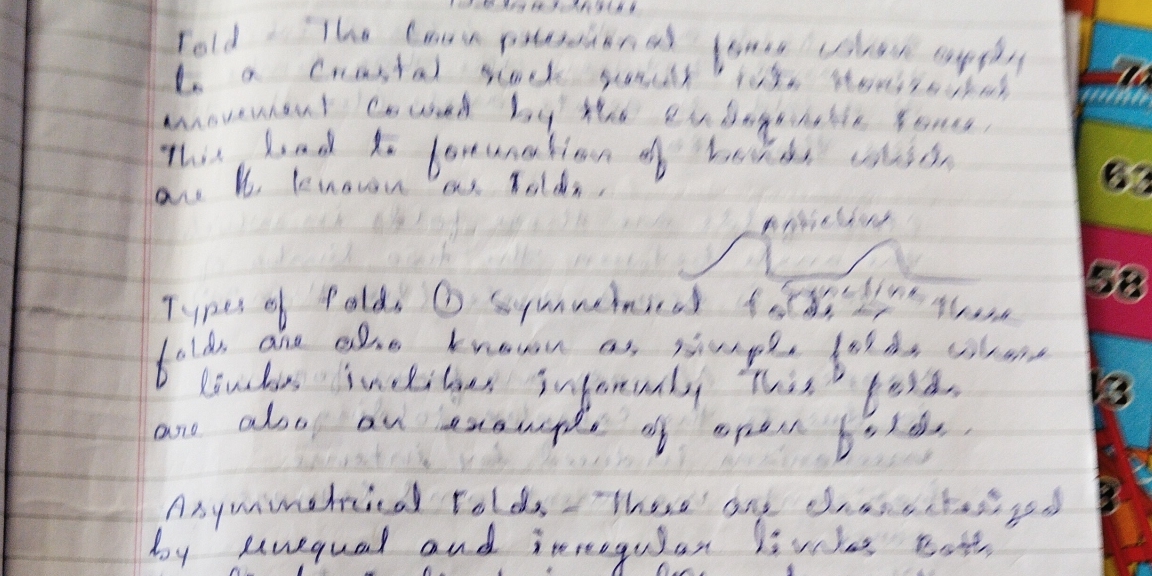What are the different types of folds in geology and their characteristics?

Understand the Problem
The question appears to be discussing geological folds, including their formation and types. It highlights various types of folds, such as symmetrical and asymmetrical folds, and their characteristics.
Answer
Symmetrical and asymmetrical folds differ by limb angles due to crust pressure.
The image describes the types of folds: symmetrical (or simple) folds, characterized by equal limb angles, and asymmetrical folds, identified by unequal and irregular limb angles. These folds form due to lateral pressures in the crust.
Answer for screen readers
The image describes the types of folds: symmetrical (or simple) folds, characterized by equal limb angles, and asymmetrical folds, identified by unequal and irregular limb angles. These folds form due to lateral pressures in the crust.
More Information
Folds are formed by horizontal compressive stresses in the Earth's crust and differ in shape and formation conditions.
Tips
Ensure limb angles are correctly identified when differentiating symmetrical and asymmetrical folds.
Sources
- Geological Folds - Geology Page - geologypage.com
- Fold (geology) - Wikipedia - en.wikipedia.org
AI-generated content may contain errors. Please verify critical information